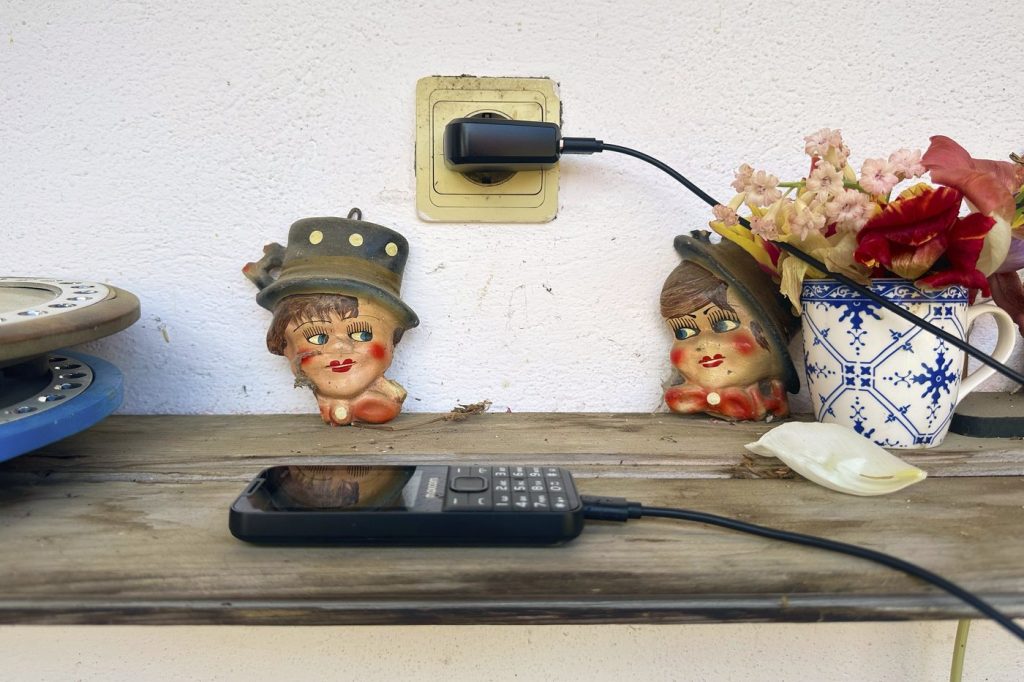SASCHIZ, Romania (AP) – In a charming village in central Romania, 83-year-old Zoica Roth expresses her sorrow over the lack of opportunities for young people, voicing skepticism about the impact of an upcoming presidential election on the depopulation of rural areas. “I have two girls and two boys. I only see them once in the summer and once at Christmas because they’re all abroad,” she explained to The Associated Press, reflecting on the gulf between her life in Saschiz, Mures County, and her children scattered across other countries. “The only solution is to leave … I miss them.”
There is rising anger towards the Romanian political establishment, which has led to increased support for far-right figures within the European Union and NATO member state, mirroring trends seen across Europe. In last year’s election, Călin Georgescu, a far-right frontrunner currently under investigation and barred from the rerun, garnered substantial backing from rural communities as well as 43% of the vote from Romania’s large diaspora, thanks to his emphasis on patriotism and faith.
Georgescu proposed supporting local farmers, reducing import reliance, and increasing domestic energy and food production. Roth described him as “a good one,” while expressing dismay over a top court’s decision to cancel the election set for December 6, which she deemed “pretty messed up.” She also voiced disillusionment with the lineup of the 11 candidates in the upcoming election rerun: “There’s nothing to choose from, they’re all the same,” she lamented.
Rural Romania continues to face challenges stemming from its communist past, with development lagging behind urban areas. Around 45% of Romania’s population of approximately 19 million lives in the countryside, often lacking jobs and basic infrastructure. Following the country's accession to the EU in 2007, millions of Romanians, including Roth’s family, migrated abroad in search of better opportunities, causing significant family separations. Roth reminisces fondly about her life during communism, saying, “It was good back then, we had places to work, we had jobs. Now I have my pension, but the young ones coming up have no jobs, nowhere to work. They leave with their bags on their backs … to foreign countries.”
Monica Rosalea, 41, works the land in Saschiz to make ends meet while periodically working in Germany. She explained, “It’s hard because there’s no work … we all go abroad,” emphasizing the difficulty of raising children while being forced to leave them at home. Rosalea voted for Georgescu last year, noting that “everyone voted for him” and expressing her uncertainty about whom she could support now, given the lack of real alternatives.
As of 2023, rural employment in Romania is the lowest in the EU, with only 61% of working-age people employed, as reported by Eurostat. Youth unemployment rates have also risen in rural areas, contrasting with a general decline across the rest of the EU. Alexandra Todea, a 23-year-old logistics administrator at a local preserves factory in Saschiz, found Georgescu’s messages appealing due to his acknowledgment of the “potential of rural areas,” offering hope for improvement.
Todea believes that increased support from the Romanian government for young people would diminish the need to emigrate for success. “We do have potential; it’s just that no one invests,” she said, expressing frustration over the cancellation of the election. Her colleague Aliz Alamorean, also 23, recently returned to Romania after living in Spain since childhood. She indicated that she would vote for Georgescu if he were permitted to run again, asserting, “The same people always have to win,” and criticizing the decision to cancel the election when Georgescu was winning.
Struggles in rural Romania are often compounded by poverty and limited access to education and healthcare, with the risk of social exclusion reaching 45% in these communities—26 percentage points higher than in urban areas. Despite these adversities, faith plays a central role in rural life, providing some hope to communities. In the village of Floresti, Liliana Cosurean, 54, described her home as a “little corner of paradise,” reflecting on the positive impact of slow tourism amidst ongoing political tensions.
Cosurean acknowledged the division caused by recent political upheaval and expressed a desire for peace, especially for the younger generations. Though she chose not to disclose her voting preference in the last election, she admired Georgescu for his ability to inspire trust through his faith. “That might be the thing that could unite us,” she said, stressing the powerful influence of faith in overcoming challenges.











